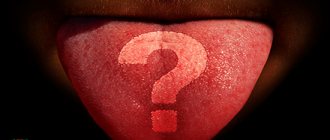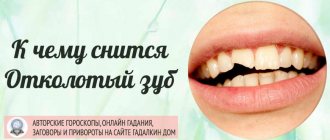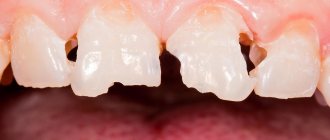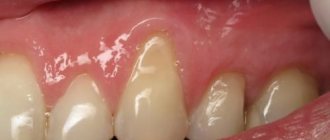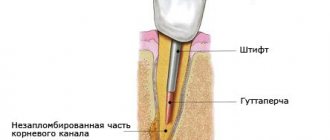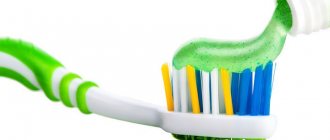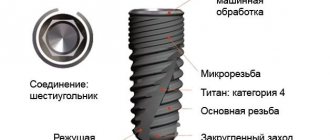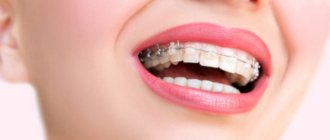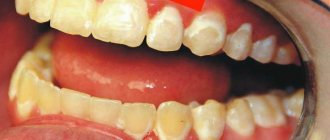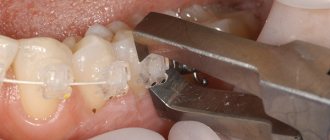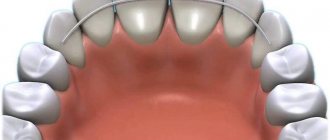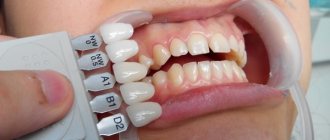Contrary to the popular belief that pregnancy is a beauty for any woman, for most, bearing a child and the process of childbirth itself usually causes an exacerbation of various chronic diseases. Teeth after childbirth and their pathologies are among the five most common problems among nursing mothers.
Various diseases of the oral cavity during breastfeeding not only cause concern for mothers, but also affect the health of the baby. If, as a result of discomfort in the mouth, a woman’s appetite decreases, then the level of breast milk production also decreases, which cannot but affect the condition of the child.
Causes of dental problems in young mothers
To understand why teeth hurt, decay or fall out after childbirth, you first need to understand the processes occurring in the female body during pregnancy and lactation. Let's consider the reasons that provoke weakening of the dental system:
- hormonal changes: lead to a decrease in bone density, at the same time, less nutrients are delivered through the blood to tooth enamel and gums. Therefore, they become more fragile and provide less protection against microbial attack and tooth decay/weakening gums during pregnancy and after childbirth,
- changes in the composition of saliva: it also contains less calcium, phosphorus and fluoride than usual - i.e. again the enamel receives less nutrients,
- lack of minerals and vitamins: primarily due to the fact that they “go” into breast milk, which is necessary for the baby. But it could also be that after giving birth, a woman simply does not know what food she should eat so that there are enough “benefits” for both the baby’s milk and her own health. The roots of the problem may also lie in poor nutrition during pregnancy, when the woman suffered from nausea due to so-called toxicosis,
- deterioration of oral hygiene: not always a young mother can find time to comb her hair or drink tea, not to mention high-quality brushing of her teeth. Meanwhile, a bacterial film and soft plaque forms on them, which subsequently transforms into hard deposits (inhabited by harmful bacteria) - and not a single toothbrush can handle it,
- stressful situations and weakened immunity: despite the fact that the birth of a child becomes a very happy event, the daily hassle of care and feeding can undermine moral and physical health. As a result, the body will become less resistant to various infections.
Not calcium alone. Revealing the complete formula for a beautiful smile
No matter how important calcium is for teeth, its content in enamel, dentin and cement does not exceed 36%. However, it is a very soft metal. Let's remember how easily the same chalk crumbles! This means that the retention of this element in the teeth depends on the presence of some other substances. The mineral is embedded in an organic framework - a collagen matrix. Accordingly, it is important to provide teeth with building materials for the construction of this protein frame.
For the formation of collagen, the amino acids glycine, proline, arginine, alanine, lysine, etc. play a primary role. Therefore, adding a set of necessary amino acids to calcium citrate will strengthen teeth both at the mineral and organic level. Taking both these factors into account, the Russian vitamin and mineral complex Osteomed was created.
The source of free, easily digestible amino acids in this product is a unique component - HDBA organic complex. This is a drone homogenate preserved using a special patented technology. It contains more than 20 amino acids, including all essential ones, and serves as an excellent base of building materials for the production of collagen by the body.
This component will also complement the mineral menu for teeth with natural phosphorus, magnesium, sodium and potassium. And the vitamins A, C, D, E, B2, B3, B4 and β-carotene found in it make this natural product a real elixir of beauty.
What do women complain about to the dentist after childbirth?
Women often notice a feeling of soreness in their mouth, that their teeth seem to ache, or they have begun to crumble and hurt, old fillings fall out, etc. The main problems that plague a young mother after childbirth are increased sensitivity of teeth, caries, pulpitis, rapid abrasion or destruction of crowns. Problems with the gums manifest themselves in pathologies such as gingivitis, periodontitis and periodontal disease.
On a note! By the way, some mothers’ teeth begin to deteriorate not only after childbirth, but also during pregnancy. But many people don’t do them, putting them off “for later.” As a result, you have to install dentures or completely remove teeth that have crumbled to the roots.
Choose the right brush and toothpaste
For what? To use them effectively and not harm yourself. A toothbrush must have artificial bristles with rounded tips, an atraumatic head, a comfortable handle, suitable for your hand and, most importantly, the stiffness of the bristles must correspond to the condition of the enamel and gums.
You also need to choose your toothpaste wisely. Here again, look at the condition of your teeth and gums, choosing for yourself what will be healthier. For example, if you have hypersensitivity, you should not use highly abrasive toothpastes, as you may harm yourself. The so-called “pastes for the whole family” will not bring harm, but they will also be of little benefit, since this is similar to the average temperature in the hospital, because each person’s situation in the mouth is different, and everyone should also have their own toothpaste.
Nuances of dental treatment after childbirth - is it possible or not?
Answering the question whether it is possible to treat teeth after childbirth, it is worth saying that during this period all bans on anesthetic injections (which were not recommended during the 3rd trimester of pregnancy) are lifted. However, if the child is breastfed, you will need to express milk in advance for feeding or switch the baby to artificial formula for one day. Also, within 24 hours after the painkiller injection, you will need to express and pour out the milk - and then you can feed the baby as before.
If, after treatment, the dentist prescribed antibiotics - for example, after tooth extraction, treatment of periodontitis or periodontitis, then you should also remember that many drugs pass into breast milk. In this case, you will also need to express and freeze the milk in advance or switch the baby to formula. And in order for lactation to be maintained at the proper level for 5-10 days (while the mother is taking antibiotics), you need to express milk 6-7 times a day, but you cannot give it to the baby.
On a note! It is not recommended to place implants after childbirth for 6-8 months, and implantation should be postponed for another six months after completion of lactation. Since the bone tissue is still quite soft (after pregnancy), the implants may not take root well. The installation of traditional prostheses - crowns or bridges - is discussed individually, because... it all depends on the initial condition of the gums and remaining teeth that may need treatment.
How to protect yourself
Before treatment, the dentist must know that the child drinks mother's milk. It is best to contact your dentist or therapist if you have a problem. After all, this doctor will be able to choose a special diet that will contain useful microelements to maintain bone tissue. Quite often, doctors prescribe medications for this period. This is all due to the fact that every woman’s teeth are at great risk. To protect your teeth during pregnancy and lactation, you need to constantly care for them. It is better to use two different pastes. In the morning, you should start brushing your teeth with a paste to strengthen the gums, which contains only natural ingredients. In the evening, a paste that is rich in minerals is best.
If during this time the diseases of the oral cavity do not stop, then you should change the brush. After all, the causes of the disease may be precisely there. You should also use dental floss and mouthwash. If your tooth hurts for a long time, then you should not endure it, but should seek help from a specialist.
A special diet and properly selected toothpaste will help preserve teeth after childbirth.
Professional hygiene – to brighten enamel and protect against bacteria
If a woman during pregnancy or after childbirth notices that her teeth have begun to look darker or yellowed, she begins to think about whitening. But most bleaching compounds containing hydrogen and urea peroxides have a rather aggressive effect on fragile enamel. Therefore, dentists recommend professional oral hygiene, which includes:
- ultrasonic removal of tartar: hard mineral deposits that accumulate near the cervical part cannot be removed even with the most modern brush. But the ultrasonic waves of a special device (scaler) cope perfectly with the problem without damaging natural tissues,
- Air-Flow water-abrasive cleaning: designed primarily to remove soft bacterial plaque, a thin pigmented film that reduces the aesthetics of a smile. Hypoallergenic preparations are used for Air-Flo, so this treatment can be done for children, pregnant women, and women after childbirth,
- polishing the enamel surface with special rollers and pastes: to make the teeth smooth and gain a natural shine. Also, smoothness prevents microbes from “attaching” to the smallest protrusions - this reduces the likelihood of plaque.
Read on the topic: what is professional oral hygiene – and why every person needs it.
By the way, it is recommended to carry out professional cleaning 1-2 times a year, even if the patient is not bothered by any problems in the oral cavity - because this greatly reduces the likelihood of caries. And after professional hygiene, dentists suggest the next step – remineralization. We will tell you why it is needed further.
Follow sanitary rules
A modern symbol of a man and a woman living together is two toothbrushes in one glass. Two, not one! Other people's bacteria are of absolutely no use to you, so never use someone else's brush - even someone very close to you. For the same reason, you should not eat with someone else’s spoon or drink from an unwashed mug. You need to be especially careful about the hygiene of children’s mouths, because from birth they are free from bacteria that destroy teeth. Their children are brought in by their own parents. It is enough to lick the spoon after the child, and then put it in his mouth again. However, we also don’t need our own “native” pathogenic bacteria. Therefore, keep all items necessary for oral care clean and dry - in a humid environment, bacteria “extracted” from your mouth actively multiply. From time to time it would be good to dip the brush briefly in a disinfectant solution, and replace it with a new one every 2-4 months.
Remineralization – for strengthening and protection against caries
How to strengthen teeth after childbirth? Of course, you need to eat right - but you don’t have to visit the dentist for this (you can consult a pediatrician, obstetrician-gynecologist, or nutritionist). We will talk about the proper diet after childbirth a little later. As for dental or in-office strengthening, the best option here would be deep fluoridation of teeth, which saturates hard dental tissues with useful substances, making them less sensitive and much more resistant to microbial attack, as well as reducing the risk of caries.
On a note! Remineralization not only makes teeth stronger and more resilient, but also reduces their sensitivity to various irritants - sour or spicy foods, hot and cold. Many patients also note that the remineralization course makes the enamel a little lighter.
Also in dentistry, fluoride varnish is used as a remineralizing therapy - but it wears off quickly, and beneficial substances do not penetrate the enamel. For home use, pharmacy gels for remineralization are prescribed - for example, brands ROCS or Biorepair.
“After giving birth, my teeth began to ache very much from various things - from brushing, rinsing my mouth, hot tea, apples when I ate, and a lot of other things - I don’t remember everything now. I went to the dentist, there was no caries (although I was already worried). The doctor said that you need to use a gel for a month or two to strengthen the enamel; they are sold in any pharmacy. And you know, it helped a lot! Now, even when the child has grown up, I still arrange a course of such strengthening for myself a couple of times a year. And by the way, there are such gels for children, too, but we haven’t tried them yet, first I want to consult a doctor.”
Nastya P., Ryazan, review from baby.ru
Symptoms
A nursing mother can determine the onset of dental disease on her own. But it can be difficult to detect the first signs of caries when the back teeth are damaged.
If caries appears on the front teeth, a nursing mother will be able to independently detect the symptoms. Caries begins at the stage of a white or dark spot. A white spot appears on the surface of the tooth enamel, which over time can become dark in color. The enamel remains unchanged, maintaining shine and smoothness. The next stage of caries is superficial. At this stage, the top layer of enamel in a nursing mother is destroyed. But dentin damage does not occur. A damaged tooth becomes more sensitive to hot and cold foods, which can cause pain. Middle caries is the next stage of tooth decay. Medium caries is characterized by damage to the upper layer of dentin. When chewing, a nursing mother may feel pain, and there may also be bad breath. The most dangerous stage is deep caries. A nursing mother feels severe pain not only when chewing food, but also when the jaw is at rest. With deep caries, damage occurs to the deep layers of dentin located next to the pulp of the tooth. Due to the decay process, a corresponding odor appears in the oral cavity.
Proper Teeth Brushing Technique
Increased sensitivity, as well as excessive abrasion of the enamel, a wedge-shaped defect can appear due to improper brushing of the teeth. The technology of proper oral hygiene includes the following steps and nuances:
- The movements of the toothbrush bristles should be vertical – i.e. You need to move the brush from the gum to the cutting edge: this way food particles and soft plaque will be swept away. Horizontal movements do not sweep away excess from the vestibular and oral surfaces of the dentition, but injure the enamel,
- thorough cleaning of the chewing surface of the lateral areas of the mouth: here you need to move the brush horizontally to clean out food debris from the fissures,
- each segment of the row should be given equal time for cleaning: many clean only the “smile zone”, but at the same time the lateral areas become covered with plaque and tartar, which lead to fissure caries or pulpitis,
- The brush and paste should not injure the enamel and gums: therefore, you need to choose a brush from a trusted manufacturer. Otherwise, you can purchase a tool with sharp fibers cut at different angles and scratch the enamel. The same thing can happen if you use a highly abrasive paste.
Don't forget to change your brush regularly (every 2-3 months) and use medicated toothpastes that are prescribed for gum disease, as recommended by your dentist.
Treatment
What can you do
You cannot treat caries on your own during breastfeeding. When the first signs of caries are detected, a nursing mother should consult a dentist. The sooner you go to the dentist, the higher the likelihood of a speedy cure for caries. If the toothache becomes unbearable, the nursing mother is allowed to take a painkiller. But the medicine must be safe for breastfeeding. If the painkiller can harm the breastfeeding baby, it is necessary to temporarily stop feeding. Breastfeeding a baby if a nursing mother has been diagnosed with caries is not prohibited. Pathogenic bacteria are not able to penetrate through breast milk into the baby's body.
What does a doctor do
Treatment of caries during breastfeeding begins at any stage. Usually, the doctor begins treatment of a damaged tooth in a nursing mother without using an anesthetic. If a nursing mother begins to feel pain during treatment, the doctor decides to use anesthesia. But after the administration of the painkiller, you cannot feed the baby for some time. The mother should express milk several times, and then start feeding again. The dentist uses special instruments to remove damaged areas of tooth enamel and dentin. The doctor fills the hole in the tooth using special materials.
Treatment of gum disease in a nursing mother
Pathology such as gingivitis often occurs during pregnancy and after childbirth. Moreover, bleeding gums must be neutralized so that dangerous bacteria do not penetrate into the general bloodstream. This can negatively affect not only women’s bodies, but also children’s bodies – if the child is breastfed.
If gingivitis is not treated, the inflammation penetrates deep along the tooth root, leading to periodontal inflammation – periodontitis. Which is more difficult to treat and never goes away completely. Another periodontal disease, periodontal disease, begins due to poor nutrition of the tissues around the teeth (gums and bones). If periodontitis and periodontal disease are not treated, the level of the gums decreases, the teeth look longer and begin to become loose, and may even begin to fall out.
Treatment of gum disease is always complex and consists of the following:
- professional oral hygiene: necessary to remove all dangerous microbes,
- removal of subgingival mineral deposits using “Varius” or “Vector” ultrasonic devices: when using these devices, you can do without gum peeling surgery,
- splinting mobile teeth with a special splint,
- curettage of the gums: often accompanied by a surgical operation to peel off the gums, so subsequently you will have to take antibiotics and resolve the issue of feeding the baby,
- applications and injections with medications (for gums): it is necessary to warn the dentist that the patient has an infant - so that the doctor selects a safe medicine,
- plasmolifting of gums: a very effective technique for gum regeneration, the treatment is based on the ability of platelets to restore living tissue,
- selection and use of toothpaste for inflammation and gum restoration: these can be pastes based on plants or medicinal substances, for example, Parodontax,
- using a toothbrush of medium hardness: “medium” is the optimal solution for high-quality cleaning and massage of the gums, because “soft” does not tone the gums at all, while “hard” injures them,
- taking vitamin complexes to improve the condition of the gums: all medications must be agreed with the dentist so as not to harm the baby. Vitamins C and PP are very useful for gums.
How to understand that a tooth will soon fall out?
You can see the problem and prevent its development in advance. Imminent tooth loss will be indicated by tooth mobility that appears for no apparent reason, for example, without a previous injury. This is a sure sign that if nothing is done, there will soon be fewer teeth. Other characteristic symptoms:
- exposure of the root surface - gum recession;
- bleeding when cleaning;
- discharge of pus from the gums when pressed;
- a feeling that the gums are swollen, their external redness and swelling.
These symptoms indicate problems with the dental system. And they serve as an indicator that in the absence of proper attention, the outcome can be sad.
As a rule, diseases of the oral cavity develop slowly, gradually. Often months pass from the “first bell” to the loss of an incisor or molar. On the one hand, this is good, as it gives a person time to contact a specialist and solve the problem before it takes on a dangerous form. But on the other hand, it “relaxes”: a person does not consider the disease to be acute and threatening with negative consequences. From time to time he tries to fight it on his own, using rinses and available medications until the symptoms alleviate. This tactic of behavior is fundamentally wrong, as it only aggravates the course of the disease.
pixabay.com/
Caries after childbirth - installation of a filling
If after giving birth a woman notices that her tooth hurts, then most likely the cause is caries or pulpitis. What to do in this case? There is no point in postponing treatment, because... Complications may begin. But there are still restrictions, and they are again based on anesthesia, or rather, on the penetration of the drug into breast milk. Therefore, for now, the baby is fed with formula or pre-expressed “frozen”.
On a note! Not all types of tooth decay require anesthesia before treatment. For example, therapy for caries in the “white spot” stage, medium caries, and sometimes the deep stage, is painless and well tolerated without anesthesia.
After childbirth, the patient can have any modern fillings1 - photopolymer, chemical curing, glass ionomer cements. The dentist decides which material is best placed and where – what is more convenient for the doctor to work with, and which material will better demonstrate its qualities in a particular case.
Read on the topic: what kind of fillings are there - TOP 7 materials for filling.
Complications
Many nursing mothers worry about the dangers of tooth decay during breastfeeding?
Pathogenic bacteria do not have a negative impact on the quality of milk. Caries causes discomfort to the mother due to painful sensations. This leads to mood swings and loss of appetite. If left untreated, caries can lead to complete tooth destruction. The disease can also cause other oral diseases, including periodontal disease. The use of anesthesia during dental caries treatment may lead to a temporary interruption of breastfeeding.
Proper nutrition for nursing mothers
How to preserve a young mother's teeth after childbirth? To do this, you need to eat right - food should be rich in vitamins, minerals and, at the same time, not cause allergies in the baby. Therefore, your daily diet should include fermented milk products (cottage cheese, kefir, hard cheeses), nuts and seeds (for example, sesame, which contains a lot of calcium), lean meat and fish, cereals, fresh seasonal vegetables and fruits, and herbs.
Do you use floss?
Most of us are as familiar with these simple devices as dental floss. If the teeth grow sufficiently evenly and tightly, the spaces between the teeth and the side surfaces of the teeth turn out to be inaccessible even for very “advanced” toothbrushes. Meanwhile, these secluded corners are very attractive to bacteria. Caries that develops at the point of contact of two teeth can only be seen by a dentist, and sometimes it is difficult to treat.
Meanwhile, flosses help to reach the most inaccessible protected areas between the teeth, removing food debris from there and depriving bacteria of a chance to survive. You need to floss before brushing. Also, use them after every meal. For use in public places, a flossette was invented - a compact and easy-to-use dental floss.
Bad heredity
Yes, heredity can cause the appearance of certain chronic diseases and developmental features. But this does not mean that if your parents or grandfather had bad teeth, then you are guaranteed to have bad teeth. A lot depends on the mother's responsibility during pregnancy.
Let's return to the issue of nutrition and dental health. A pregnant woman needs to eat enough calcium, vitamins D3, salt and minerals. The health of a baby’s teeth will definitely be affected by a lack of any substances, even after decades in adulthood.
Adjust the load on your teeth
Strong mechanical pressure destroys teeth, so forget about the Nutcracker's career. To crack nuts, there are special tongs, but your teeth have a different purpose. Even ordinary threads can cause tooth decay if you have the habit of constantly biting them with the same teeth, as some amateur dressmakers do.
The habit of clenching your teeth too hard, let alone grinding them, is dangerous: this leads to abrasion of the enamel. Sometimes this happens in a dream. But this case is not hopeless - there are special mouthguards that are put on the teeth before going to bed. They will protect. But the teeth and gums need feasible loads. Don’t be afraid to chew raw vegetables, and don’t try to unnecessarily chop and grind foods.
Use toothpicks carefully
It’s not always possible to floss or rinse your mouth after lunch, let alone fully brush your teeth. A toothpick will help. Fortunately, most restaurants and cafes have learned to include a package of sharp wooden sticks among the items that must be on the tables (salt - pepper - napkins). Wooden toothpicks are preferable - they protect the enamel - but you can also use plastic ones. But in order not to damage the periodontal tissue - the ligaments of the gums and teeth - the toothpick must be used very carefully and it is better to replace it with a flosset.
